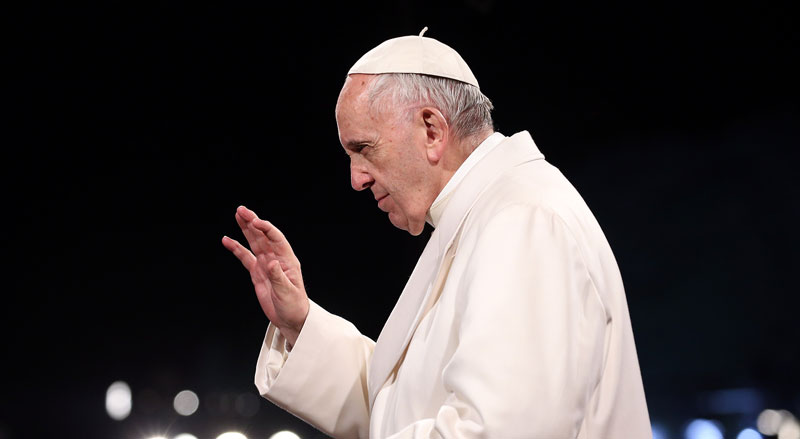It’s Friday night in Westwood, and the room is packed. It’s a stylish, attractive crowd — lawyers, entertainment executives, marketing analysts and other professionals who look like they had a chance to stop off at home after work and freshen up before coming. The buzz is happy and social: lots of nods, smiles and some head craning to check out the latecomers who enter from the back. What’s newsworthy about the scene is that this isn’t some mid-level film première party. It’s a Shabbat service at Sinai Temple.
Started in June as a once-a-month event, “Friday Night Live” has become a happening, of sorts. The most recent service, on Sept. 11 (one is held the second Friday of each month), easily drew 800 people. “FNL,” as its devotees have taken to calling it, is buoyed by the efforts of a core group of volunteers who call up friends and circulate mailing lists. It’s funded through a grant from the Jewish Community Foundation and by donations from a handful of Sinai member families.
The tone and flavor of the service, however, are set by Wolpe, the head rabbi at Sinai, and by local musician and performer Craig Taubman (“Craig ‘n Co.”), who serves as the evening’s good-humored hazzan. Together, they are careful to create an atmosphere that is welcoming, user-friendly and communal. Taubman, a guitar slung over his shoulder, leads the zmirot and encourages participatory sing-alongs with the assistance of a low-key musical trio.
Wolpe steers clear of speechifying, instead keeping his remarks brief and tailored to this makeshift congregation of well-educated singles — many of whom, he is well aware, have avoided the inside of a synagogue since their bar mitzvahs. Serious spiritual insights may be given ballast by the wisdom of Talmud scholars, but Wolpe is also given to illustrating a point with references to the old “Star Trek” television series and other signposts of boomer pop culture.
If attendance is any guide, the formula seems to be working. The first Friday Night Live, in June, drew about 400 people, and the numbers have already doubled. From the outset, Jewish community leaders paid close attention to the project, which was designed to be a West Coast equivalent of the hugely successful Congregation B’nai Jeshurun program on the trendy Upper West Side.
While some skeptics scoffed at the idea of duplicating that success in a setting as sprawling and atomized as Los Angeles, others were more optimistic. “If they can pull it off, it would really be great,” said one local pulpit rabbi. “They’ve certainly got the location to draw large numbers of the kind of people they’re trying to attract.”
Just who are the kind of people FNL is trying to attract? Part of the reason for the high level of interest and informal oddsmaking is that Wolpe and Taubman are taking on that highly coveted Jewish demographic — the young, professional, single and disaffected. While that may sound like the working title of a soap opera, it’s a fairly accurate description for the burgeoning numbers of unaffiliated or uninvolved Jews who look around the community and don’t see anything that beckons them.
Wolpe regards the effort to give them an entry point as critical. “This is the time of life when people drift off, during college perhaps, but particularly after college,” he told The Jewish Journal. “I think that there are concerns particular to this age group that often get ignored at synagogues, which, after all, are geared toward families. We want them to discover where they’re going before they have children…. [Friday Night Live] is something they have been looking for, and many people have told me they’re grateful it exists.”
Alissa David, a 30-year-old who directs the philanthropic Entertainment Industry Foundation, echoes that observation. Chairperson of the committee that organizes FNL, she was one of the volunteers who began working the phones last spring, helping Wolpe get this project off the ground. “This is ours. It’s not our parents’. It’s something that I think was missing in this town…. Wolpe has touched a nerve for our generation.”






















 More news and opinions than at a Shabbat dinner, right in your inbox.
More news and opinions than at a Shabbat dinner, right in your inbox.